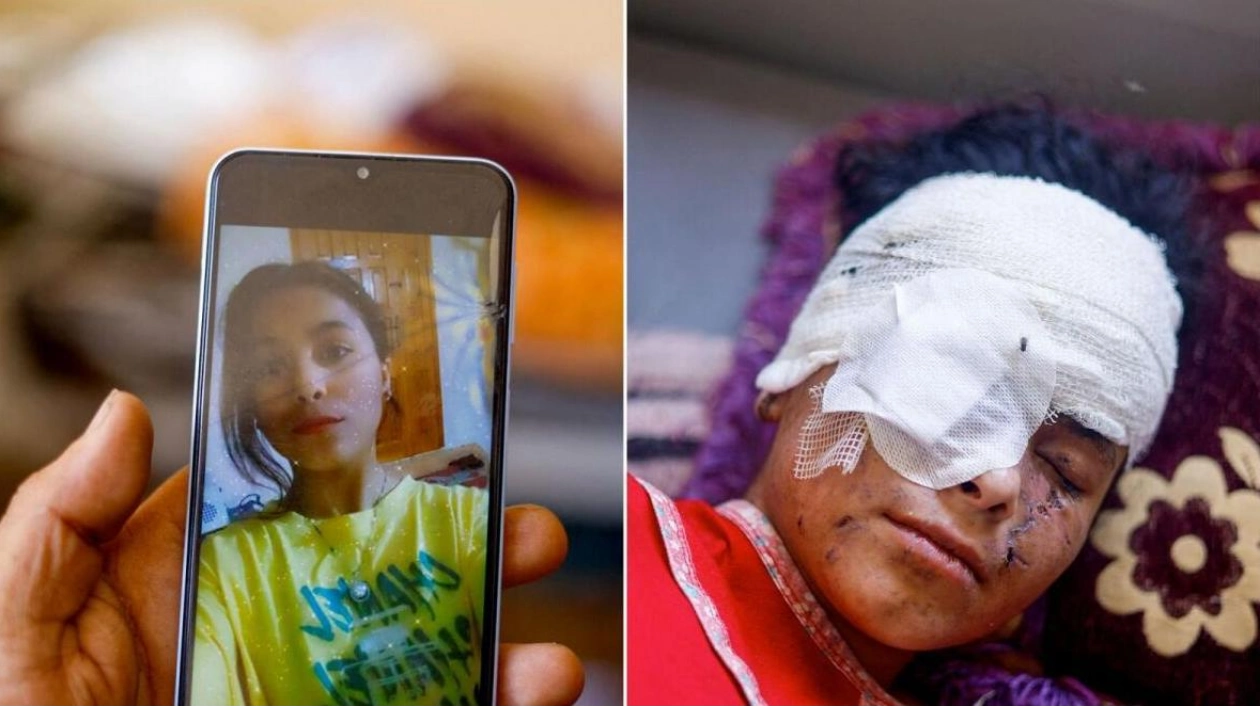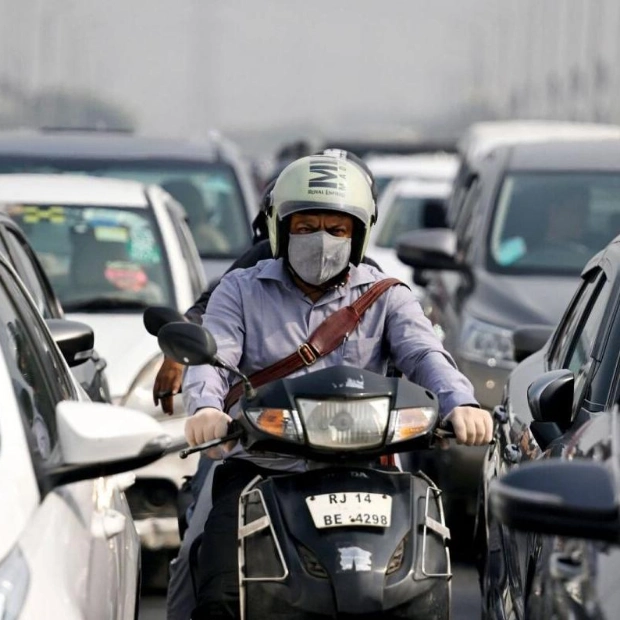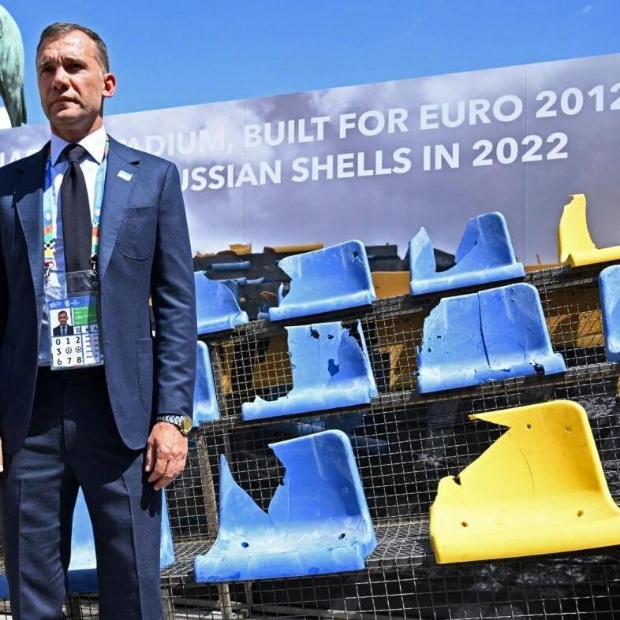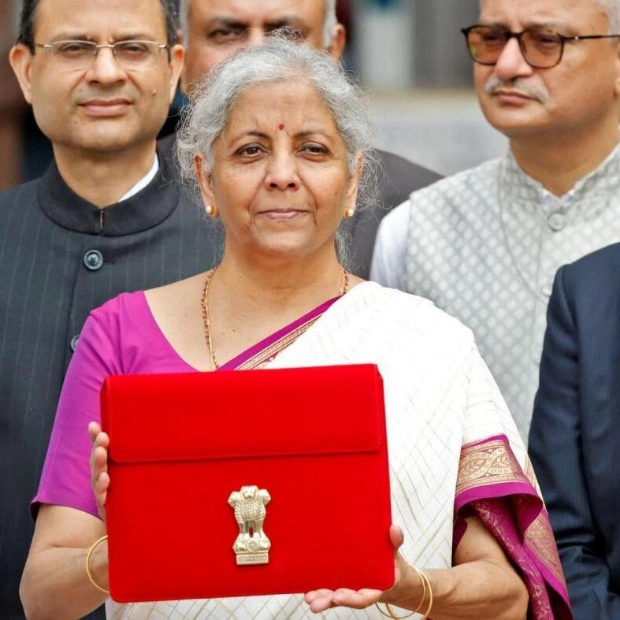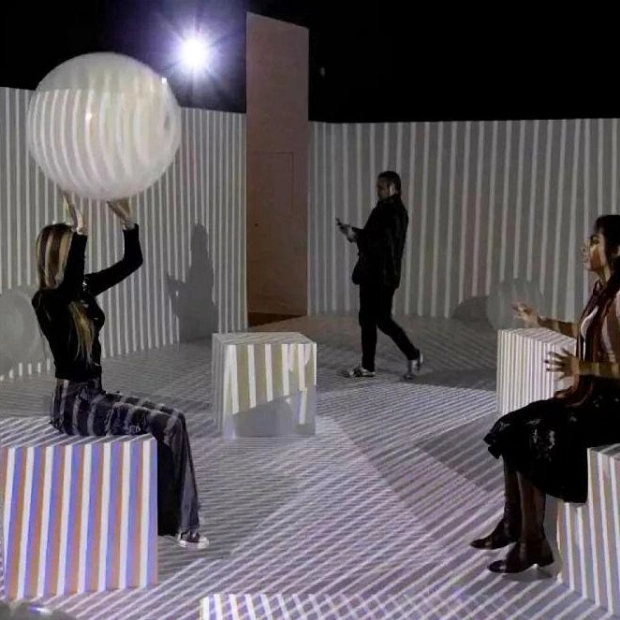Palestinian teenager Maisa Al Ghandour, who once aspired to be a doctor or teacher, was left blind after an Israeli strike in war-torn Gaza nearly two weeks ago. "Now, I wish to die. Life in Gaza is no longer living; we are merely hoping for death, our existence has turned into a waiting for death," said Maisa, 14 years old. Maisa was injured in an Israeli artillery attack at Eilabun High School in Al Karara town, east of Khan Younis, on July 26, according to her family.
Maisa described the injuries sustained by her siblings, Yara, 9, and Mohammed, 11, saying, "There are shrapnel fragments in our chests, abdomens, and faces." She expressed a desire to seek treatment outside Gaza due to the lack of medical supplies within the region. The family had sought refuge in the school after multiple displacements during Israel's ongoing offensive, which has resulted in approximately 39,600 Palestinian deaths and 91,535 injuries, as reported by Gaza health authorities.
Israel's military actions were initiated following a cross-border raid by Palestinian militant group Hamas in October, which led to the deaths of around 1,200 Israelis and foreigners, and the capture of over 250 others, according to Israeli accounts. The family recalled a relatively normal start to the day before the attack in Al Karara.
Israel asserts that it takes extensive measures to prevent civilian casualties, accusing Hamas of using civilians as human shields by operating in densely populated areas, humanitarian zones, schools, and hospitals, a claim Hamas refutes. The girls' mother, Ola Al Ghandour, expressed her hope for her daughters' recovery, noting their disfigurement and loss of vision.
In addition to the ongoing bombardment, Palestinians in Gaza are grappling with a severe humanitarian crisis, facing shortages of food, water, electricity, and medicine. Despite efforts by mediators from Qatar, Egypt, and the United States, the conflict continues to escalate tensions across the Middle East.
At Nasser Hospital in Gaza, nurse Makram Awad recounted the Ghandour family's plea for help, highlighting the dire state of medical supplies. "Two days ago, the parents of these children came seeking assistance, reporting that worms were emerging from their children's heads. We did our best with the scant medical resources available," Awad said. He called on those with a sense of responsibility to support Gaza hospitals in providing even basic medical care.
